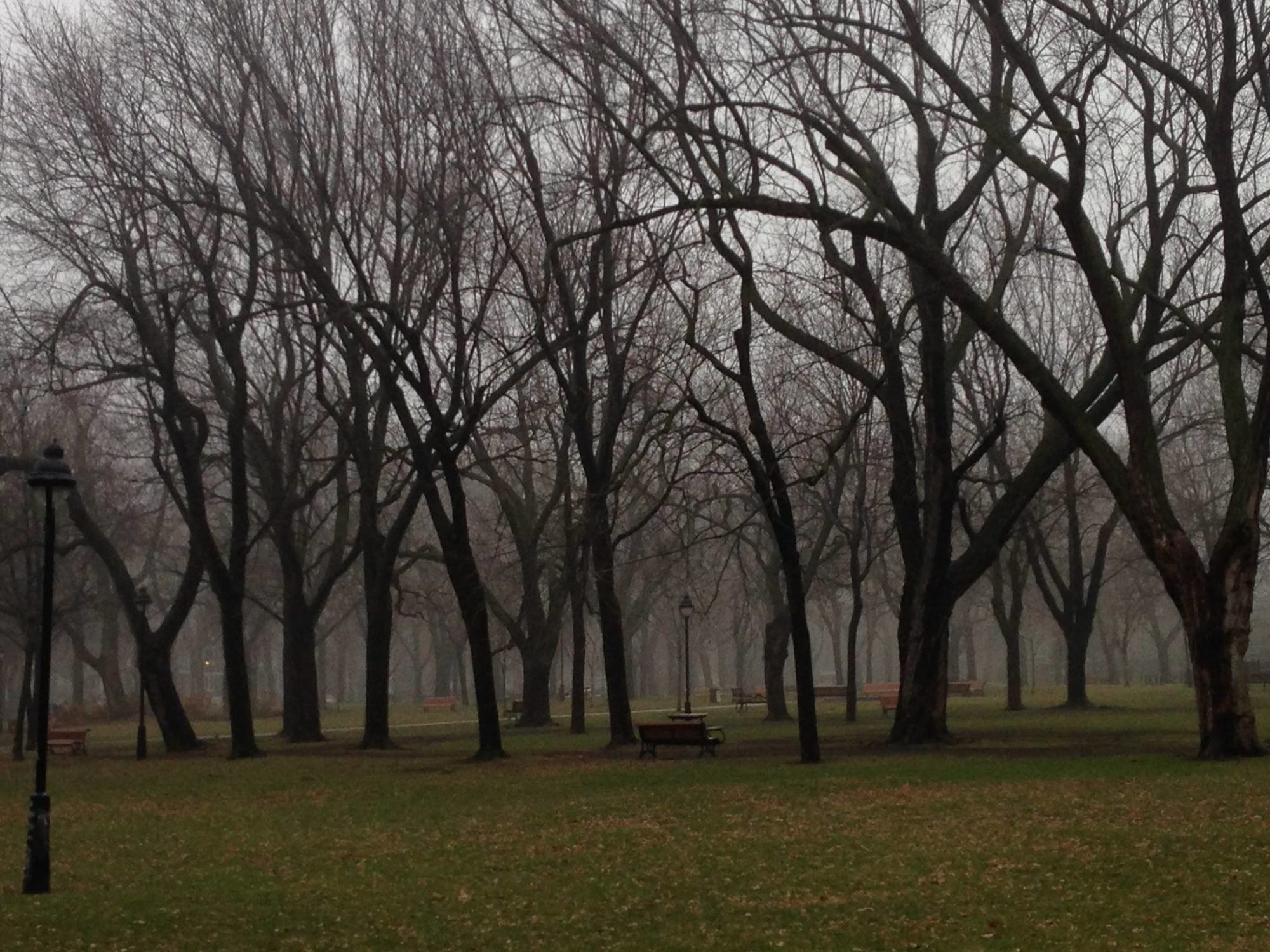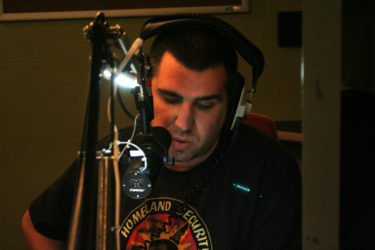The discussion on the Two Row Wampum a treaty between the the Mohawk and Dutch was one of the highlights of last Thursdays events. It began with a few words from moderator Ellen Gabriel who talked about the importance of Mohawk treaty rights and how the government could learn from the the Mohawk about good governance. Tom Porter a Mohawk teacher from Kahnawake who brought some of his students to the TRC opened with a greeting in the traditional language. “The Reason we do this greeting is so that you can hear and see things clearly, that you can have an open mind about the discussion.â€
In her discription of the the Two Row wampum Gabriel spoke of how the rivers never crossed, I sign of respect that neither culture would disturb the other as was written. She talked about when the British arrived in upstate New York they made treaties with Mohawk. “This is about peaceful coexistance the original peace treaty with one of the original democracies†Gabriel then went on to introduce John Cree a Mohawk Elder from the Bear clan of Kanesatake. who started by talking about the creation of the two row wampum.
“It brought us the great laws that were very easy to follow but now not so much and when the Dutch came we made sure that we would respect each others culture†Cree went to add that the the land belong to the women of the community, that like women the land provided for the people. The next panelist introduced by Ellen Gabriel was Tom Porter a chief of the Bear clan in Kahnawake. Tom echoed the words of Gabriel and Cree. “Before the whites arrived, we had a system of government, we had a set of laws and unlike the ancient Greeks our women were equal and we didn’t have slaves.
He quickly moved to the subject of the residential schools, native children suffered severe abuse at the hands of the church’s who ran them. “We were told that we had to change our names to christian ones†He spoke of the schools in the United States, Australia and New Zealand where similar abuses happened. “We have a duty to share the stories of the residential schools with younger generations to insure that we learn and understand why it happened? We to insure that we teach the culture, songs and stories so that we can maintain who we are†Tom’s message was that of pride, pride in who we are as so that we can undo the damage to our communities and our culture. He referred to his students sitting in the front row that they had their names and spoke their languages and that they were now teaching the older ones that knowledge.
The final panelist was Skawennati Fragnito who talked about why she had been invited to speak about she had been born in exile. “I have a Mohawk mother and a white father and two Mohawk grandparents but I am not on the registry in my community because my mother married my father†She compared the Indian act to one of the omnibus bills currently passing through parlinement, she talked about how native women lost their right by marrying white men while native men did not have that problem.
And that was how it was designed to work, a forced assimilation for the women who married outside their race lost their voices within their communities. It was a very effective piece of legislation. “Who we were came through the women in the community, the children lost their rights as well. It split up families and caused a lot of pain†In 1985 the Indian act was ammended to include those who were originally with rights got them back. Unfortunately the damage was already done because a lot of those children were not welcomed back into the community because of their white liniage. “I don’t want to be called a survivor, I don’t want to be a victim I want us to thrive. We had a strong culture in the great law of peace, we are sharing this land and we have break that cycle of father and son.â€
She concluded by saying that we all have to come together in order to thrive. Ellen finished with speaking about the children and how of all the subjects spoken very little is said about the two spirited people that the LGBT community needs to be recognized as well. That the band councils were just an extension of the government, that we needed to acknowledge the societal problems facing the people in our communities and urban areas.
Irkar W Beljaars
 mohawk_voice (Twitter)

